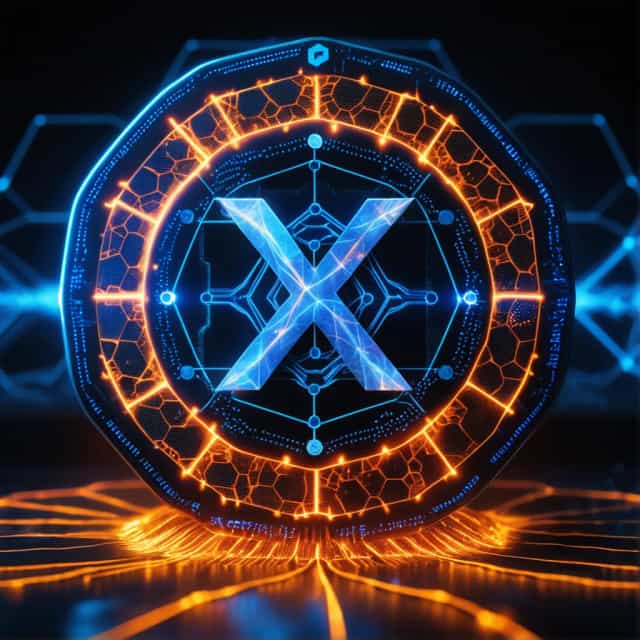
출처: Block Media
BlockFesta 2025: Paving the Path for Blockchain Institutionalization in Seoul
BlockFesta 2025, organized by Block Media, officially commenced on October 26 at the Textile Center in Samsung-dong, Seoul. Now in its seventh year since the inaugural event in 2018, BlockFesta has established itself as a hub for blockchain dialogue. With the theme "The Institutional Era," this year’s conference unites regulators, investors, blockchain platforms, startups, and innovators to explore the transformational shift toward a regulated and institutionalized blockchain ecosystem.
The Blockchain Industry’s Evolution: Stablecoins and Institutional Embrace
2025 has marked a turning point in the digital asset space, with stablecoins at the forefront of the industry’s progression into regulatory frameworks. Globally, stablecoins have gained substantial traction, becoming integral to payments, remittances, and broader financial systems. In South Korea, legislative conversations around integrating stablecoins into the formal financial sector have driven market anticipation for more regulatory clarity.
Amid these advancements, Bitcoin (BTC) achieved a record high of $120,000 earlier this year, cementing its place as the world’s fifth most valuable asset. Simultaneously, innovation in niche areas such as tokenization of real-world assets (RWA) and AI-powered blockchain projects has carved out new avenues for growth. However, challenges persist, including regulatory uncertainty, market volatility, inconsistent project performance, and concerns surrounding the pace of innovation.
The industry’s evolution has crystallized into four noteworthy trends this year: stablecoin institutionalization, an increase in institutional engagement, market consolidation, and the integration of blockchain technologies into mainstream financial systems.
Highlighting the Push for Institutionalization at BlockFesta 2025
Focusing on institutionalization, BlockFesta 2025 sheds light on critical structural shifts affecting blockchain’s future—ranging from fundamental legislation and stablecoin regulations to RWA tokenization, security tokens (STOs), and institutional funding. Featuring contributions from senior policymakers, legislators across party lines, legal experts, and financial thought leaders, the event underscores the emergent synergy between regulation and innovation.
Choi Chang-hwan, CEO of Block Media, emphasized the pivotal role of blockchain in reshaping global finance and wealth distribution. “BlockFesta continues to cultivate meaningful dialogue,” Choi remarked. “We aim to position this event as a globally recognized platform for showcasing digital asset innovation.”
South Korea’s Strategic Role in the Blockchain Revolution
Speaking at the event, Rep. Min Byung-deok of the Democratic Party highlighted South Korea’s unique strengths in the global digital finance arena. With cutting-edge digital infrastructure, competitive cultural and industrial capabilities, and an active base of over six million digital asset users, Korea is well-positioned as a leader in blockchain innovation.
Rep. Min underscored the significant potential of creating a South Korean stablecoin pegged to the won, envisioning it as a tool to enhance public financial access and protect monetary sovereignty. He asserted that such advancements could propel South Korea into a "Digital G2" superpower role in the evolving digital finance ecosystem.
Key Sessions: Bridging Policy, Finance, and Innovation
BlockFesta 2025 spotlights three core sessions, each designed to unpack the policy, financial, and technical dimensions of blockchain institutionalization:
Session 1: Digital Asset Legislation and Policy Directions
Park Yong-beom, President of the Korean Blockchain Association, opened with a keynote on the intersection of digital asset regulation and its integration into capital markets. A high-profile panel discussion featuring attorneys Kim Seo-ryong and Kim Ik-hyeon, Deloitte’s Lee Dong-ki, and Jay Lee of K&L Gates Hong Kong explored the regulatory conditions necessary for fostering corporate investment in digital assets. Additionally, BitMEX co-founder Arthur Hayes shared forward-looking insights into Bitcoin’s trajectory.
Session 2: "On-Chain Finance Revolution"
Delving into blockchain-enabled finance, former Financial Services Commission (FSC) Director Yoo Jae-soo outlined the transformation of financial infrastructure. Former Minister of SMEs and Startups Park Young-sun highlighted the symbiotic potential of integrating AI with blockchain, while Lambda256 and Story demonstrated real-world on-chain finance applications.
Session 3: Institutional Capital Meets Web3
The final session featured prominent Web3 pioneers, including Anoma, Kite, and Orbs, discussing the interplay between institutional capital and Web3 initiatives. LG CNS Digital Trust Head Lee Jeong-hwa and Open Asset CEO Kim Kyung-up provided perspectives on the Korean adoption of institutional blockchain solutions. Sungkyunkwan University’s Professor Im Byung-hwa offered insights into global trends surrounding blockchain’s role in finance, while Ryan Yoon of Tiger Research forecasted the future of Web3 applications.
Uniting Domestic and International Blockchain Leaders
This year’s BlockFesta attracted an impressive roster of global blockchain collaborators, including ChainOpera, Anoma, Portals, Vana, Superform, BOB, Kernel DAO, and Kite AI. Partnerships with entities like LFG, GlassMarket, and SafePal further solidify the conference’s international prominence. Domestically, major players like Upbit operator Dunamu, Bithumb, Coinone, Korbit, GOPAX, Hashed, OpenAsset, and Lambda256 are actively contributing to discussions on blockchain adoption and institutionalization.
Rep. Kim Jae-seob of the People Power Party expressed optimism regarding the conference’s focus on creating "institutional frameworks, on-chain finance, and formalized markets," key elements for advancing the digital asset landscape.
Networking for the Blockchain Future
With attendance from over 600 participants, BlockFesta 2025 offers invaluable networking opportunities for policymakers, global Web3 innovators, investors, and financial leaders. As the blockchain ecosystem evolves, the event provides a comprehensive, collaborative space to shape the future of digital finance.










